End-to-end epigenetic services from sample prep to full data analysis including ChIP-Seq, CUT&Tag, DNA methylation sequencing, ATAC-Seq, gene expression, chromatin structure mapping, IP-mass spec, and single-cell services.
Epigenetics
ChIP-Seq services for Histone PTMs and Transcription Factors with Spike-In Normalization. End-to-end service from sample prep to bioinformatics.
Get high-quality histone mark CUT&Tag results from less starting material. Submit cells or tissue samples and receive the fully analyzed data within weeks.
Native mapping of transcription factors and histone marks with lower input than traditional ChIP.
Whole-genome and gene-targeted analysis. RRBS, MeDIP/hMeDIP, bisulfite sequencing, and 5-fC/5-caC profiling.
End-to-End services for genome-wide profiling of open chromatin regions from cell lines, primary cells, and tissue samples.
Interrogate chromatin structure and genome organization within the 3D nuclear space. Map all interactions between distant loci in the genome.
Single-Cell
Mapping open chromatin, gene expression, or both, at the single-cell level.
Single-Cell ATAC-Seq (scATAC-Seq)
Single-Cell RNA-Seq (scRNA-Seq)
Single-Nucleus RNA-Seq (snRNA-Seq)
Single-Cell Multiome
Mass Spectrometry
Choose RIME to identify transcriptional cofactors & chromatin associated proteins.
Measure the global abundance of >80 different histone modifications. We use mass spectrometry to detect post-translational modifications on the core histone subunits.
Gene Expression
Next-generation sequencing based gene expression profiles. RNA isolation from cells and tissues, to comprehensive data analysis and bioinformatics.
Request a Quote
To obtain a quote, please complete our Epigenetic Services Information Request form.
Customer Testimonials
Find out what our services customers think by visiting our customer testimonials page.
Epigenetic Services Publication List
Sample Submission Portal
Our online sample submission portal allows you to easily upload your service project samples and track your project status. Follow the sample submission instructions in the portal to ensure that all your samples arrive at Active Motif in the best possible condition and properly associated with your project.
Genome-wide analysis using Next-Gen sequencing has significantly broadened the ability of scientists to understand epigenetic events. However, reproducibly generating high-quality, interpretable data from chromatin immunoprecipitation (ChIP) experiments can be challenging as it requires prior knowledge of working antibodies, optimized protocols for various cell types and knowledge of cell type-specific binding sites. Add in the technical and bioinformatics challenges associated with generating whole-genome data sets, and ChIP-Seq may literally be beyond your reach. That’s why our Epigenetic Services team provides a wide variety of ChIP services. This makes it possible for you to utilize our expertise and research tools without having to be an expert in the techniques yourself.
The goal of Active Motif Epigenetic Services is to make cutting-edge research accessible to the wider life science community. For over 10 years we have provided services for state-of-the-art techniques that have helped accelerate the research of scientists in academic laboratories, government institutions, biotechnology and pharmaceutical companies.
Experience – we are the only end-to-end ChIP service provider
- >10 years of experience providing ChIP Services
- Over 15,000 ChIP samples processed
- Over 10,000 ChIP-Seq reactions processed
Expertise – don’t spend weeks optimizing each step
- Antibody recommendations for 350 targets
- Chromatin prep protocols optimized for > 15 species and over 25 tissues types
- Custom primer design and testing for each assay
- QC steps effectually ensure final ChIP-Seq data is of high quality
Collaborative interaction – have control over your samples and data
- Direct access to our lab scientists
- Recommendations for experimental design and appropriate controls
- Troubleshooting included
- Suggestions/help with next steps
Bioinformatics support – answer important biological questions
- Data for all assays are delivered fully analyzed
- Data delivered in several visual formats and custom Excel output
- Quick gene list generation
- Example data is available for download for all of our services
Some of our many Academic customers include ...






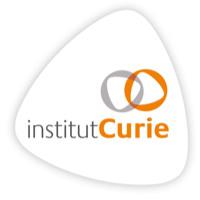

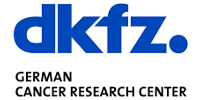












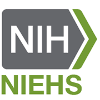











Some of our customers in the Pharmaceutical industry include ...




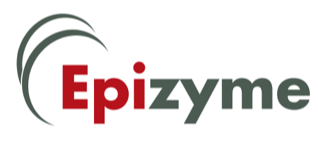
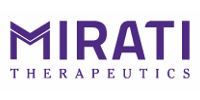
Pharmaceutical customer publications referencing our Epigenetic Services
Epizyme
- EZH2 inhibition by tazemetostat results in altered dependency on B-cell activation signaling in DLBCL. Brach et al. 2017. Mol Cancer Ther. doi: 10.1158/1535-7163.MCT-16-0840.
- Selective Inhibition of EZH2 by EPZ-6438 Leads to Potent Antitumor Activity in EZH2-Mutant Non-Hodgkin Lymphoma. Knutson, K. et al. 2017. Mol Cancer Ther. DOI: 10.1158/1535-7163.MCT-13-0773.
Genentech
- Therapeutic targeting of the CBP/p300 bromodomain blocks the growth of castration-resistant prostate cancer. Lingyan, Jin et al. 2017. Cancer Res. doi: 10.1158/0008-5472.CAN-17-0314.
- Repression of stress-induced LINE-1 expression protects cancer cell subpopulations from lethal drug exposure. Gulfem, Dilek Guler et al. 2017. Cancer Cell. DOI: https://doi.org/10.1016/j.ccell.2017.07.002.
- Transcription factor Etv5 is essential for the maintenance of alveolar type II cells. Zhang, Z. et al. 2017. Proc Natl Acad Sci. 114 (15) 3903-3908. doi.org/10.1073/pnas.1621177114.
- An alternative approach to ChIP-Seq normalization enables detection of genome- wide changes in histone H3 lysine 27 trimethylation upon EZH2 inhibition. Egan, B. et al. 2016. PLoS One. doi.org/10.1371/journal.pone.0166438.
- CCAT1 is an enhancer-templated RNA that predicts BET sensitivity in colorectal cancer. McCleland, M.L. et al. 2016. J Clin Invest. doi: 10.1158/0008-5472.CAN-17-0314.
- Loss of NAPRT1 expression by tumor-specific promoter methylation provides a novel predictive biomarker for NAMPT inhibitors. Shames, D.S. et al. 2013. Clin Cancer Res. DOI: 10.1158/1078-0432.CCR-13-1186.
- Specification of type 2 innate lymphocytes by the transcriptional determinant Gfi1. Spooner, C.J et al. 2013. Nat Immunol. doi:10.1038/ni.2743.
- Loss of the tumor suppressor BAP1 causes myeloid transformation. Gulfem, Dilek Guler et al. 2012. Science. 337: 1541. DOI: 10.1126/science.1221711.
GSK
- EZH2 inhibition as a therapeutic strategy for lymphoma with EZH2-activating mutations. McCabe, M. et al. 2012. Nature. 492, pages 108–112. doi:10.1038/nature11606.
BMS
- Sensitivity of small cell lung cancer to BET inhibition is mediated by regulation of ASCL1 gene expression. Lenhard, R. et al. 2015. Mol Cancer Ther. 14: 2167. DOI: 10.1158/1535-7163.MCT-15-0037.
Pfizer
- IRAK4 kinase activity controls Toll-like receptor–induced inflammation through the transcription factor IRF5 in primary human monocytes. Cushing, L. et al (2017) J Biol Chem. doi:10.1074/jbc. M117.796912.
- Reciprocal regulation of amino acid import and epigenetic state through Lat1 and EZH2. Dann, S.G. et al. 2017. EMBO. DOI 10.15252/embj.201488166.
Mirati
- The class I/IV HDAC inhibitor mocetinostat increases tumor antigen presentation, decreases immune suppressive cell types and augments checkpoint inhibitor therapy. Briere, D. et al. 2017. Cancer Immunology, Immunotherapy. DOI: 10.1007/s00262-017-2091-y.


